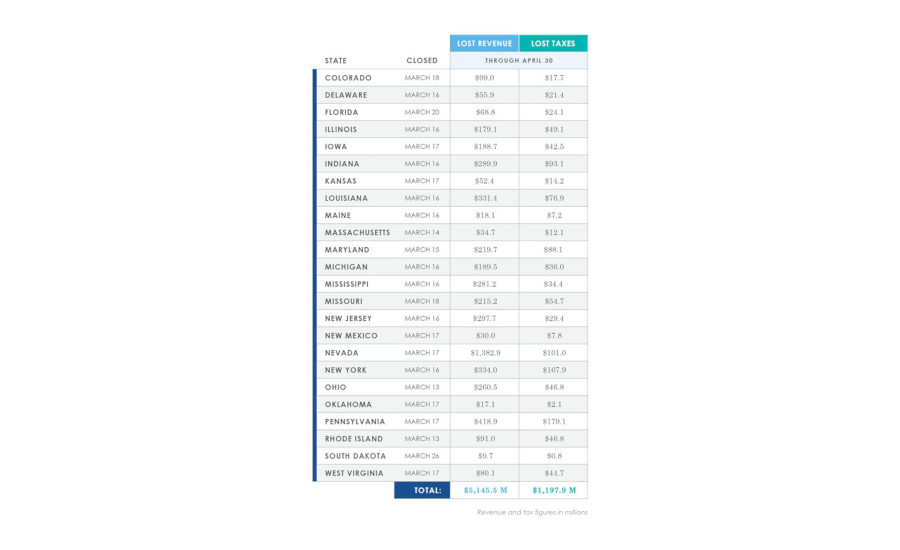Gaming industry continues to lose amid coronavirus pandemic

A recent survey of gaming and hospitality industry decision makers regarding coronavirus-related issues showed that a growing number of respondents believe it will take three months or less for their businesses to get back on track.
As casinos and gaming operators are considered non-essential businesses, they have been forced to temporarily cease operations during the COVID-19 pandemic.
All commercial casinos in the U.S., from Atlantic City to Las Vegas, have been closed since March with no definite timetable for their full return. During this first month and a half, RubinBrown estimates that operators and states have lost approximately $5,145.5 million and $1,197.9 million, respectively.
The calculated figures are based on historical March and April gaming revenue and tax data from 2017 through 2019. An average was taken for each state’s data, in which the monthly averages were summed to arrive at the total projected losses. As all casinos and gaming operators were open for a portion of March, an adjustment was made to only account for the days these businesses were closed.
Gaming revenue lost during this pandemic, and the related state and local taxes will be difficult to make up when properties reopen. As states begin to reopen, the casino industry will be looking to protect the safety of their patrons and employees through increased social distancing measures. Some of the initial measures expected to be implemented include reducing maximum occupancy to 50 percent, reducing the number of betting positions at each table (such as reducing the positions at a typical blackjack table from seven to three and limiting craps and roulette tables to four patrons, etc.), and reducing the number of active slot machines or removing seats in front of them to keep patrons at a safe distance from other guests. While all of these will help protect the safety of the patrons and employees, they will lead to a prolonged recovery period.
It goes without saying, but the decreased gaming revenue will ultimately lead to a decrease in state and local taxes from casino operations. This will have a trickle-down effect within local communities as funding provided from these taxes that is commonly earmarked for school and education funds, libraries, infrastructure improvements and local governments’ general funds will now be unavailable. Normal operations, capital improvements and special projects will be altered or deferred, thus expanding the casino shutdown’s impact on the economy and local communities.
As the COVID-19 pandemic continues to impact the U.S., and social distancing measures are enforced on a state-by-state basis, the future is uncertain as to when business will return to normal in this industry. A potential second wave and public fear of the virus could further elongate the period in which these losses will be sustained, making it further challenging to anticipate when revenue for these non-essential businesses will return to pre-pandemic levels.
Though in the end we may be able to estimate the damages from the pandemic, it is important to remember this price tag is all for one important reason—to ensure the safety and well-being of everyone in our communities.